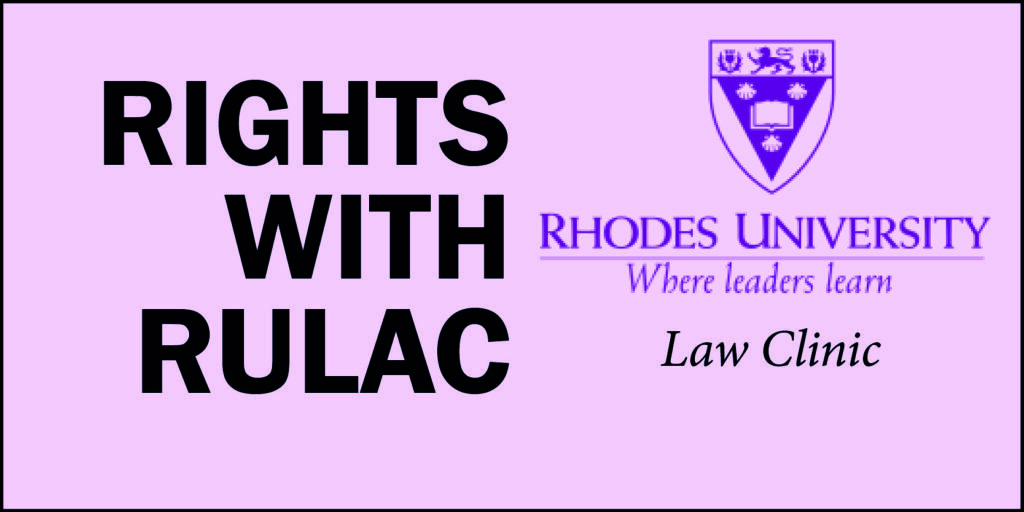By SIPHIWE YUZE
Do the terms child custody and access sound familiar? These terms were used in any situation regarding children. These terms were replaced in the Children’s Act of 2005 with the terms ‘care’ and ‘contact’ (respectively). The Children’s Act is an important piece of legislation; it governs the laws relating to the care, contact and the protection of children.
The best interests of the child is a constitutional right of every child. In all matters concerning a child, the best interests of the child is paramount. Best interests of the child includes but is not limited to: the nature of the personal relationship between the child and his/her parents or caregiver; the capacity of the parents or caregiver to provide for the needs of the child; the attitude of the parent towards the child; and the needs of the child.
The term ‘custody’ was replaced with the term ‘care’. Care in relation to a child means: providing the child with a suitable place to live; providing living conditions that are conducive to the child’s health, well-being and development; providing the necessary financial support; protecting the child from maltreatment, abuse, exploitation and any other physical, emotional, or moral harm. It includes guiding, directing or securing the child’s education, upbringing, religious and cultural education, in a manner appropriate for the child’s age, maturity and stage of development. This includes accommodating any special needs that the child may have, and ensuring that every child’s best interests are the overriding concern in all matters affecting the child.
The term ‘access’ was replaced with the term ‘contact’. Contact refers to the notion of maintaining a personal relationship with the child. This includes vising the child if the child lives with someone else; being visited by the child; communicating with the child on a regular basis in any manner including telephone, post, email or skype, to name a few. It is important to note that it is a child’s right to have contact with both his/her parents. In considering the amount of contact a child should have with a parent, the factors contained in the Children’s Act are taken into consideration. Each situation is different and unique, and the outcome depends on the facts presented, the child’s development, the parent’s relationship with the child, and the child’s wishes where appropriate.
What happens in the event that parents or caregivers experience difficulties in exercising their parental rights and responsibilities, or the parents are simply unable to co-parent?
Those parents should first try to agree on a parenting plan to regulate the exercise of their rights and responsibilities, and they should do this before approaching the court. A parenting plan is a method to assist parents with how to exercise their parental rights and responsibilities after separation or divorce. It sets out how parents will exercise their respective rights and responsibilities. It must comply with the ‘best interests of the child principle’ as set out in the Children’s Act. It must include issues such as: where and with whom the child is to live; the maintenance of the child; contact between the child and the other parent or caregiver; the schooling and religious upbringing of the child.
A parenting plan is essentially a roadmap directing how children are to be raised after their parents separate or get a divorce. It is a written agreement drafted by both parties with the help of a neutral third party such as the family advocate, a social worker, psychologist or attorney acting as a mediator. A parenting plan must be in writing and must be signed by the parties to the agreement. Once drafted and signed, the parenting plan must be registered with the family advocate, or made an order of court.
A parenting plan registered with the family advocate can be amended or terminated by the family advocate on application by the parents or parties to the plan. A parenting plan that is made an order of court may only be amended or terminated on application to the court by one of the parties to the plan, by the child acting with leave of the court, or by any other person acting with leave of the court in the interests of the child. The bottom line of a parenting plan is to find a plan that works for the whole family. It should minimize loss and maximize relationships for children with their parents.
- Siziphiwe Yuze is a Candidate Attorney at the Rhodes University Law Clinic.
Rhodes University Law Clinic helping you
The Rhodes University Law Clinic strives to improve access to justice through the provision of free legal services to indigent people in most areas of law. In addition to its New Street offices, Law Clinic staff are available to clients at the Assumption Development Centre (Konongendi), Nceme Street, Joza, on the first and third Thursday of every month from 9am-12pm.
Law Clinic staff also conduct a talk show on Radio Grahamstown on the second and fourth Friday of every month, and provide workshops on a wide range of topics in order to raise awareness of people’s rights. For more detail, please contact the Rhodes Law Clinic:
Rhodes University Law Clinic
41 New Street, Grahamstown
Telephone 046 603 7656
lawclinic@ru.ac.za


